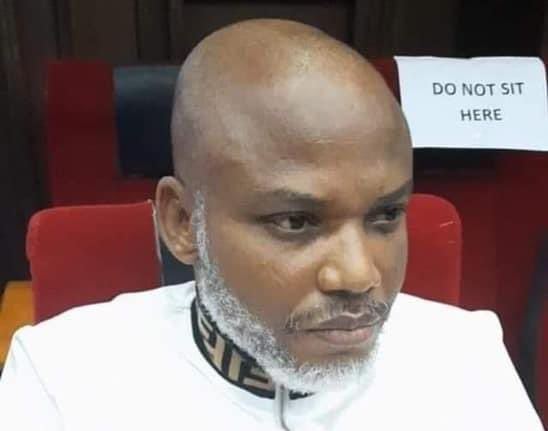UK high court frowns at Kanu’s rendition to Nigeria
. Fails to indict foreign secretary
By Stephen Ukandu, Umuahia
The United Kingdom High Court has made an unconventional ruling in a significant human rights case centred on the Leader of the Indigenous People of Biafra, IPOB, Mazi Nnamdi Kanu, the British national and the leader of the Indigenous People of Biafra (IPOB).
The was communicate to Ikengaonline through Kanu’s Special Counsel, Aloy Ejimakor.
Whilst Mr Justice Swift noted the findings of the UN Working Group on Arbitrary Detention and the two separate rulings from Nigeria’s High Court and Court of Appeal that Mr Kanu had been extraordinarily rendered to Nigeria following his ‘interception’ in Kenya by Nigerian security forces and observed himself that Mr Kanu had been subject to “rendition”, he went on to hold that the Foreign Secretary was legally entitled to make no decision on whether this is the case or not.
Bindmans, LLP, the legal team acting for Mr Kanu’s family described the ruling as “extremely difficult to reconcile with long-standing legal precedent and the principle underpinning it”.
Mr Kanu’s case was heard over four months ago on 15 November 2022. In today’s judgment, Mr Justice Swift noted the evidence of serious wrongs having been committed against Mr Kanu, including that in 2017, the Nigerian state had attempted to kill Mr Kanu (for which a Nigerian High Court awarded compensation and an order for apology), that the Nigerian authorities captured Kanu in 2021 whilst he was in Kenya and subjected him to inhuman and degrading treatment, and crucially that he was subject to “rendition”.
The Court also highlighted extracts from the Opinion of the UN Working Group on Arbitrary Detention and the Nigerian courts, which unanimously found that Mr Kanu was subject to extraordinary rendition and which called for his release.
However, despite clearly recognising the gravity of the wrongs committed against Mr Kanu, the Court disappointingly held that Mr Kanu has no legitimate expectation that the British government should reach a firm view for itself on what had occurred or its seriousness.
This is particularly surprising given that the Court itself reached the view that Mr Kanu had been rendered on the basis of the evidence before it.
The Court’s judgment is unsatisfactory not just for Mr Kanu but for any British national who finds themselves subject to a serious violation of their rights whilst abroad.
It effectively enables the Foreign Secretary to prevaricate indefinitely in the face of such a violation and consequently limits the steps the British authorities should take to assist a British national, even in circumstances where there is unequivocal evidence of that violation.
The Kanu family has appealed the judgment.
Reflecting on the judgment, Kingsley Kanu, who brought the lawsuit said: “The UK High Court has now joined the Nigerian High court and Court of Appeal and the United Nations in recognising, correctly, that my brother was subject to extraordinary rendition.
“That is something of importance. But I find it very disappointing that in spite of this, the High Court has held that the British authorities are not required to reach a decisive view on his rendition and can refuse to confront the mass of evidence of what has occured. Until the British authorities reach such a view, it is impossible for them to properly consider what steps should be taken to assist my brother.”
Kanu’s family is represented by John Halford and Shirin Marker of Bindmans LLP, together with Charlotte Kilroy QC of Blackstone Chambers and Tatyana Eatwell of Doughty Street Chambers.
Ms Shirin Marker said today, that: “Despite taking four months to decide this case, the High Court has produced a judgment that is extremely difficult to reconcile with long-standing legal precedent and the principle underpinning it, which is that British Citizens abused abroad are entitled to expect decisiveness and protection from the British Government, rather than years of hand-wringing procrastination.”

